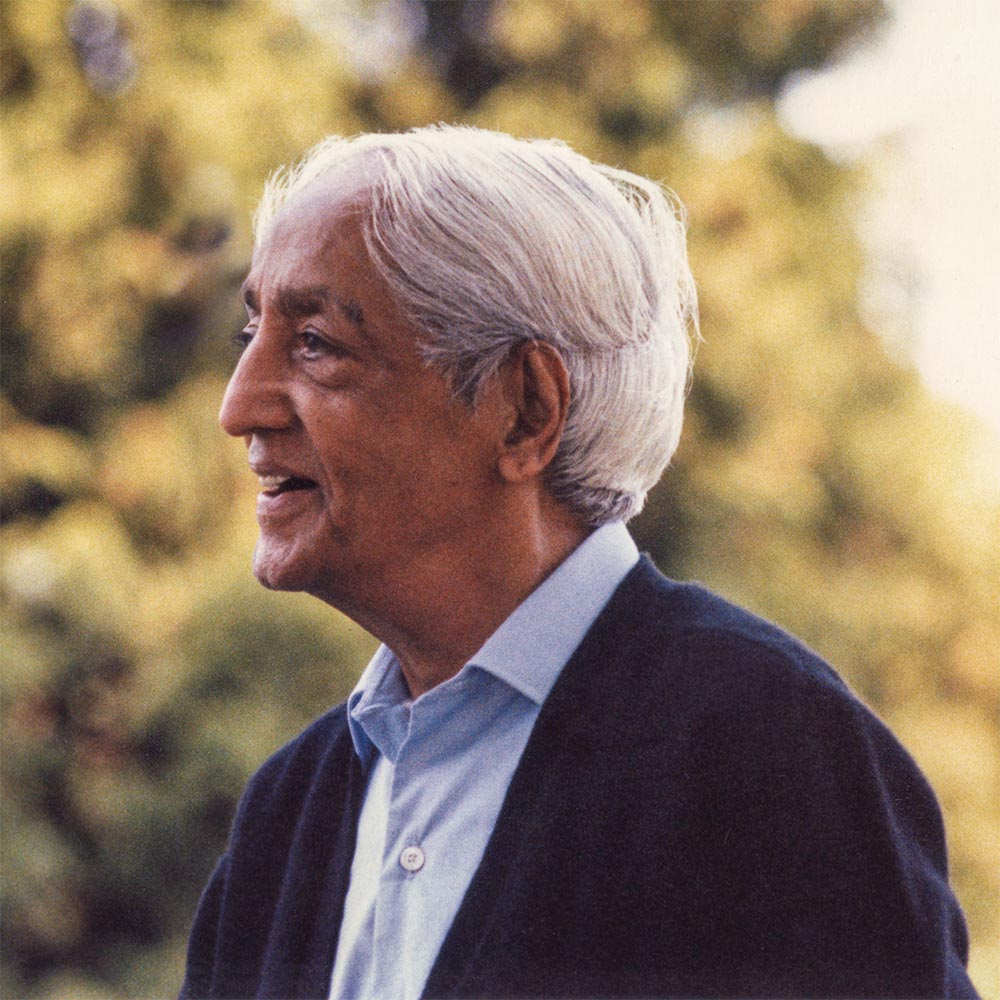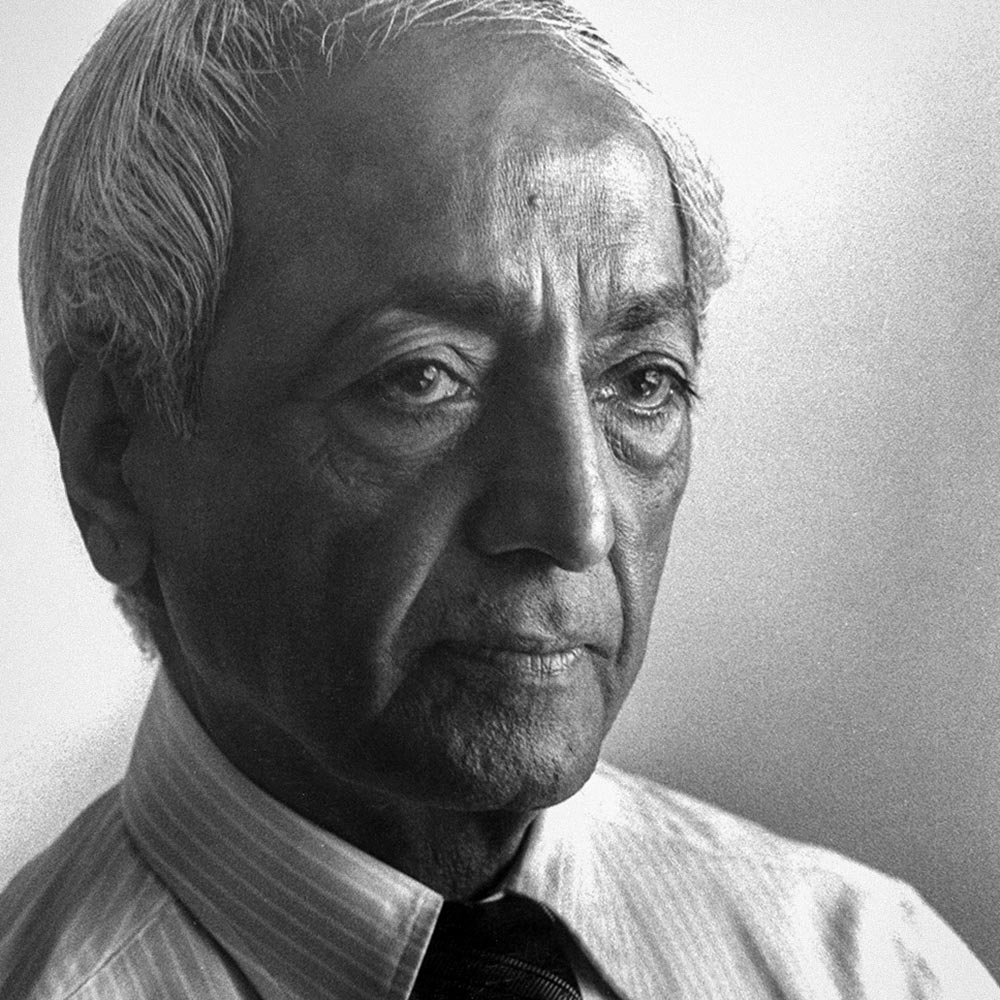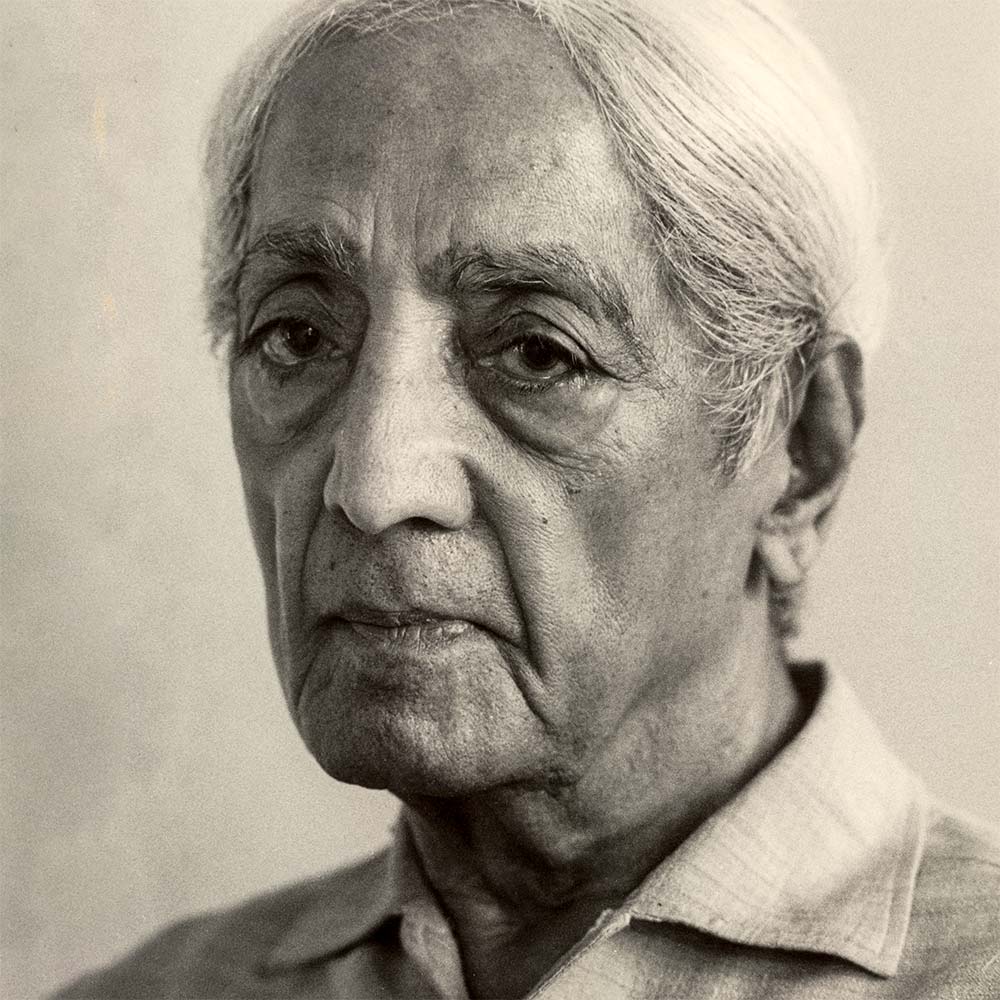Thought creates its own space, as time, the distance from here to there. On that, the whole modern world is built.
Krishnamurti, The Awakening of Intelligence
Read More
The mind is the maker of time; it is time.
Krishnamurti, Commentaries on Living 2
Read More
The mind is the product of time, as all thought is its result; and thought working to free itself from time only strengthens its enslavement to time.
Krishnamurti, Commentaries on Living 3
Read More
As long as the mind thinks in terms of changing through time, of bringing about a revolution in the future, there is no transformation in the present.
Krishnamurti, Commentaries on Living 3
Read More
The self-centred activity of the ‘me’ is a time process. It is memory that gives continuity to this activity.
Krishnamurti, The First and Last Freedom
Read More
Time is not revolutionary. In the process of time, there is no transformation, only a continuity and no ending.
Krishnamurti, The First and Last Freedom
Read More
Time is not revolutionary. In the process of time, there is no transformation, only a continuity and no ending; there is nothing but recognition. Only when you have complete cessation of the time process, of the activity of the self, is there a revolution, a transformation, the coming into being of the new. Being aware of this whole total process of the ‘me’ in its activity, what is the mind to do? It is only with renewal, it is only with revolution – not through evolution, not through the ‘me’ becoming, but through the ‘me’ completely coming to an end – that there is the new. The time process cannot bring the new; time is not the way of creation. I do not know if you have had a moment of creativity. I am not talking of putting some vision into action; I mean that moment of creation when there is no recognition. At that moment, there is that extraordinary state in which the ‘me’, as an activity through recognition, has ceased.
Time in the psychological realm is the enemy of man.
Read More
We think that time will help us to come to truth. Time will not do that.
Krishnamurti, Meeting Life
Read More
For the religious mind, there is no time. Time exists only in the state of a continuity moving to a further continuity and achievement.
Krishnamurti, Meeting Life
Read More
Unless time has a stop, the mind cannot perceive anything sacred, anything new.
Krishnamurti, To Be Human
Read More
When time as movement, time as thought achieving a result, comes totally to an end, action is instantaneous.
Krishnamurti, To Be Human
Read More
Love has no time.
Read More
You and I intrinsically have the capacity to be happy, to be creative, to be in touch with something that is beyond the clutches of time.
Krishnamurti, Commentaries on Living 2
Read More
Part of meditation is to find out for oneself whether time can stop.
Krishnamurti, This Light in Oneself
Read More
Thought is of time; intelligence is not of time.
Krishnamurti, The Awakening of Intelligence
Read More
These quotes only touch on the many subjects Krishnamurti inquired into during his lifetime. His timeless and universal teachings can be explored using the Index of Topics where you will find texts, audio and video related on many themes. Another option is to browse our selection of curated articles or more short quotes. Krishnamurti’s reply when asked what lies at the heart of his teachings can be found here. Many Krishnamurti books are available, a selection of which can be explored here. To find out more about Krishnamurti’s life, please see our introduction and the biography. We also host a weekly podcast, and offer free downloads. Please visit our YouTube channel for hundreds of specially selected shorter clips. Below, you can learn more about Krishnamurti and our charity which he founded in 1968.

Who Was Krishnamurti?
J. Krishnamurti (1895-1986) is widely regarded as one of the greatest thinkers and religious teachers of all time. He spoke throughout the world to large audiences and to individuals, including writers, scientists, philosophers and educators, about the need for a radical change in mankind. Referring to himself, Krishnamurti said:
He is acting as a mirror for you to look into. That mirror is not an authority. It has no authority, it’s just a mirror. And when you see it clearly, understand what you see in that mirror, then throw it away, break it up.
Krishnamurti was concerned with all humanity and held no nationality or belief and belonged to no particular group or culture. In the latter part of his life, along with continuing to give public talks, he travelled mainly between the schools he had founded in India, Britain and the United States, which educate for the total understanding of man and the art of living. He stressed that only this profound understanding can create a new generation that will live in peace.
Krishnamurti reminded his listeners again and again that we are all human beings first and not Hindus, Muslims or Christians, that we are like the rest of humanity and are not different from one another. He asked that we tread lightly on this earth without destroying ourselves or the environment. He communicated to his listeners a deep sense of respect for nature. His teachings transcend man-made belief systems, nationalistic sentiment and sectarianism. At the same time, they give new meaning and direction to mankind’s search for truth. His teaching is timeless, universal and increasingly relevant to the modern age.
I am nobody. It is as simple as that. I am nobody. But what is important is who you are, what you are.
Krishnamurti
Krishnamurti spoke not as a guru but as a friend. His talks and discussions are based not on tradition-based knowledge but on his own insights into the human mind and his vision of the sacred, so he always communicated a sense of freshness and directness, although the essence of his message remained unchanged over the years. When Krishnamurti addressed large audiences, people felt that he was talking to each of them personally, addressing their own particular problem. In his private interviews, he was a compassionate teacher, listening attentively to those who came to him in sorrow, and encouraging them to heal themselves through their own understanding. Religious scholars found that his words threw new light on traditional concepts. Krishnamurti took on the challenge of modern scientists and psychologists and went with them step by step, discussing their theories and sometimes enabling them to discern the limitations of their theories.
Krishnamurti left a large body of literature in the form of public talks, writings, discussions with teachers and students, scientists, psychologists and religious figures, conversations with individuals, television and radio interviews, and letters. Many of these have been published as books, in over 60 languages, along with hundreds of audio and video recordings.

The Krishnamurti Foundation
Established in 1968 as a registered charity, and located at The Krishnamurti Centre, Krishnamurti Foundation Trust exists to preserve and make available Krishnamurti’s teachings.
The Foundation serves a global audience by providing worldwide free access to Krishnamurti videos, audio and texts to those who may be interested in pursuing an understanding of Krishnamurti’s work in their own lives.
In describing his intentions for the Foundations, Krishnamurti said:
The Foundations will see to it that these teachings are kept whole, are not distorted, are not made corrupt.

